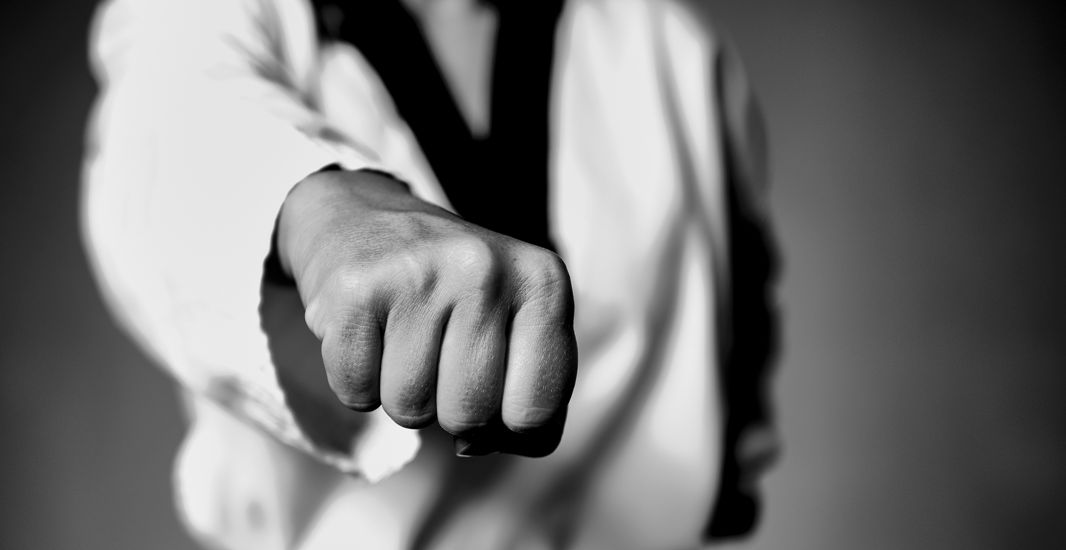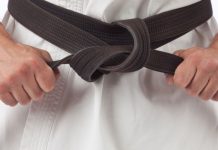As a parent, you cannot help but reflect upon the nature of discipline. There is one concept of discipline, entirely wrong-headed, that focuses on the nature of limitations on our conduct as harsh or restrictive. The very term discipline even calls to mind for some the specter of corporal punishment. It seems to belong to a prior age.
That’s not the kind of discipline I am talking about.
Discipline of the beneficial kind comes from within. It feeds all our endeavors and infuses them with energy and purpose. Its restrictions are born of the deliberate limitation of our selfish and transient desires, in the interest of developing our full potential. That’s the kind of discipline that a child needs, and having it right from the start can make all the difference in a child’s life. Given that any constructive discipline comes from within and cannot be imposed from without, how do we bequeath this gift to our children?
As a martial artist and the parent of an energetic, enchanting five-year old daughter, I have given this matter a great deal of thought.
Kids don’t instinctively welcome discipline. Neither do many adults, if you think about it. We all struggle to varying degrees with discipline whether it be at the dinner table, in the regularity of our workout schedule, with the management of our finances or some other form of activity. The exercise of discipline normally involves something that we know is good for us and that we should either do more of or abstain from, but we still have trouble doing what we very well know is in our interest.
If discipline were easy and simultaneously so beneficial we would see it everywhere, but that’s clearly not the case. Correspondingly, if discipline is difficult for an adult, how much harder is it going to be for a child? What children need to overcome the obstacles between them and the attainment of discipline is our example. We have to live it every day. Can children who do not see discipline in their parents’ daily lives exhibit it themselves? Eventually, perhaps. But no parent can escape the fundamental reality that parenting involves leadership, and you lead your child down the right or wrong path by what you do every day.
That’s a heavy responsibility. There may not be a greater one.
In the martial arts discipline involves a degree of repetition, and true perfection always recedes one step farther into the distance as the martial artist progresses in rank. Even Grand Masters have progress yet to achieve, and can lose their hard-won gains quickly without constant, diligent practice. There is always one more goal to be reached, and no final destination or point of rest. To rest in the martial arts is to lose momentum, and to lose balance in life. The cultivation of patience, particularly as it involves the repetition required in order to gradually perfect a task, is a vital skill for life. The repetitive nature of practice may seem dull at first, but it leads to introspection. The concentration and persistence required to execute a roundhouse kick literally thousands of times until the body aligns with the mind in unity of purpose is not commonly met with among those we encounter in our daily life. It makes a visible difference in a person. Just like any real success, it cannot be faked. Kids see it and know it for what it is.
Respect is something kids want to feel for the adults in their lives. We just have to give them a reason. Their respect for our self-discipline is the key. If we lack discipline, the respect will not materialize. Teaching your child right from wrong is essential, of course, but more is required. Showing your child in your daily conduct that you have discipline provides a path for that child to follow, and involves leading by example. It’s what kids need from us. If you walk to the refrigerator more often than you head to the gym, your child will probably grow up to do the same thing. Happily, the reverse is also true, and the destiny of our children is more in our hands than we may conventionally realize.
How do we enable our children to deliver a powerful roundhouse kick to the life they will lead, to embrace and overcome obstacles cheerfully with persistence and grace? All manner of difficulties lie in our path. The tenor of our culture is such that the desire for instant gratification has been exponentialized by technology. Everything happens fast. If you need an answer to a question, there’s Google. Highly edited, selectively portrayed lives are lived on Facebook with nothing messy to cloud the supposedly perfect picture, and kids start to get the wrong idea about what life is. Life is messy, and it involves hard work if you want to get anywhere. No worthwhile journey is easy. Yet technology and the way we use it has created an expectation of easy success, of sailing on a calm sea of life that is amenable to our will and untroubled by storms. In such a world, if it ever existed, discipline would possess no utility and would never be necessary. That world may be an illusion, but the existence of the illusion and its effect on our child’s minds is very real. Thus is born a longing for an easy life rather than a full one, and its siren song calls our kids away from discipline. How then to call them back?
While the merits of character can be a tough sell these days, there are ways. The first is to epitomize the virtues you would seek to instill. No one believes a talker instead of a doer. That’s simple enough. The second is to show discipline as a path to fun that your child would never enjoy otherwise. Anyone can ride down the slide at a theme park, or park their carcass in front of the television while loading up on nachos and watching the Sunday game on television. Those things can be fun, up to a point, but they are passive activities that pull you away from better things you could be doing with your time.
Kids may gravitate to theme parks just like adults gravitate to the local sports bar, but we all know intuitively the critical difference between active and passive kinds of fun. While in the passive activity you experience something, in an active form of endeavor such as martial arts you become something. My daughter has seen me begin martial arts training at the age of forty-six, break boards with a hammer fist and execute a wide variety of holds, kicks and punches as I progress with hard work from beginner to black belt. I don’t just tell my daughter that learning is a life-long process, I show her that with my actions. She sees that I’m really having fun when I practice and test for a new belt. That’s the key. It makes her want to join in, and to grow in her own discipline of choice.
Though discipline never becomes easy, it does become familiar. We martial artists adopt it as our natural paradigm, and anything else leads us to feel slightly out of tune. For the martial artist, a week without training – a week without discipline – is not a holiday. Time off from being your best self is not time off at all, it’s losing your edge and, in the process, your identity and strength of self. Knowing this, we can teach our children that the easy way is not really easy, it just seems so. Conversely, discipline once established has a self-sustaining momentum of its own. It doesn’t come easy, but it does come. The trick is to get discipline started once the right way and then feed that momentum, just as air feeds a fire.
People can be prone to making exaggerated claims, and have a tendency to identify their favored activity as the one and true fount of all things virtuous and disciplined. Martial artists can fall into that trap, too. One can achieve discipline in painting, archery, or any other calling. The activity itself is not important. The medium that gives rise to discipline pales in comparison to the achievement of discipline itself. Finding your particular path to discipline will set you on a journey at the end of which you encounter your self, only better. It is never too late to begin. That I know from experience.
Aristotle reasoned thousands of years ago that good habits are critical to success and happiness in life. It’s still true. We all can fall into bad habits from time to time. No one is immune to that. But discipline is our best protector from the entropy waiting to fold us in its deceptively warm embrace and, most important of all, it shines a light for our kids to follow.







